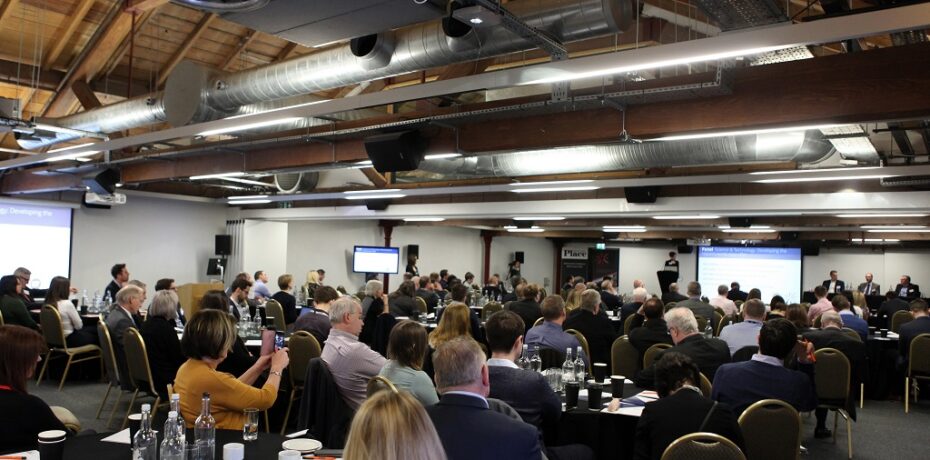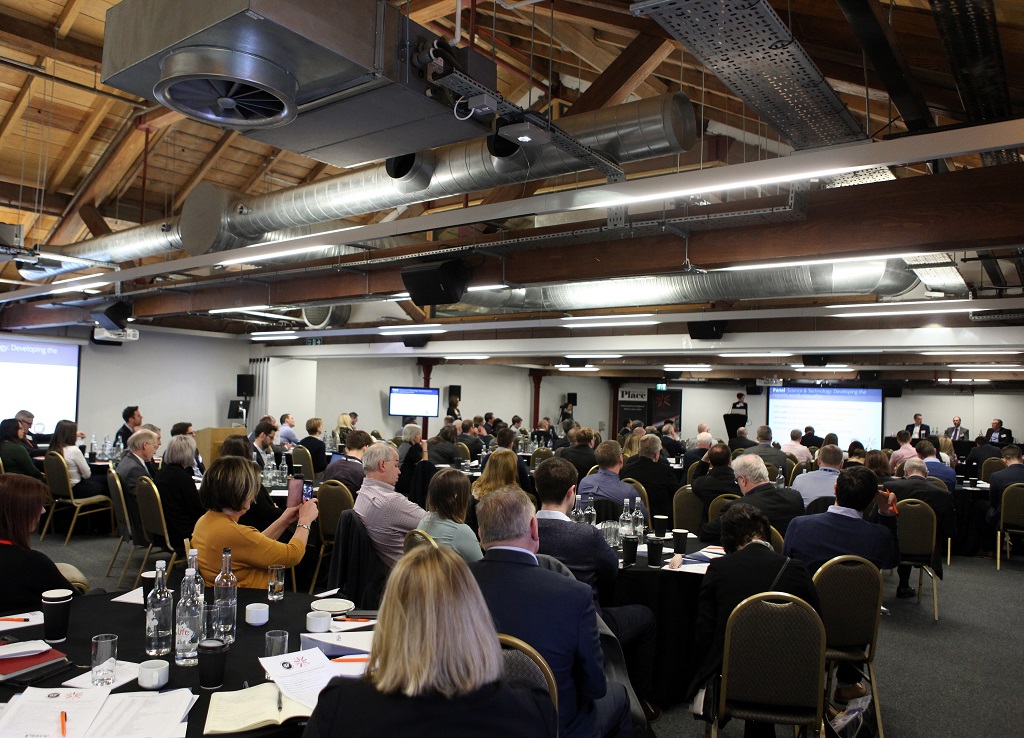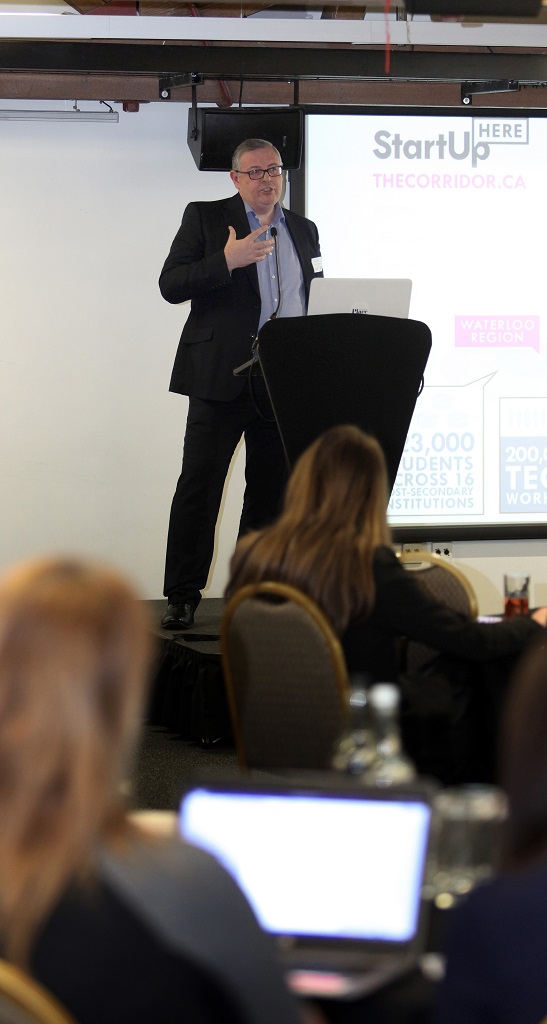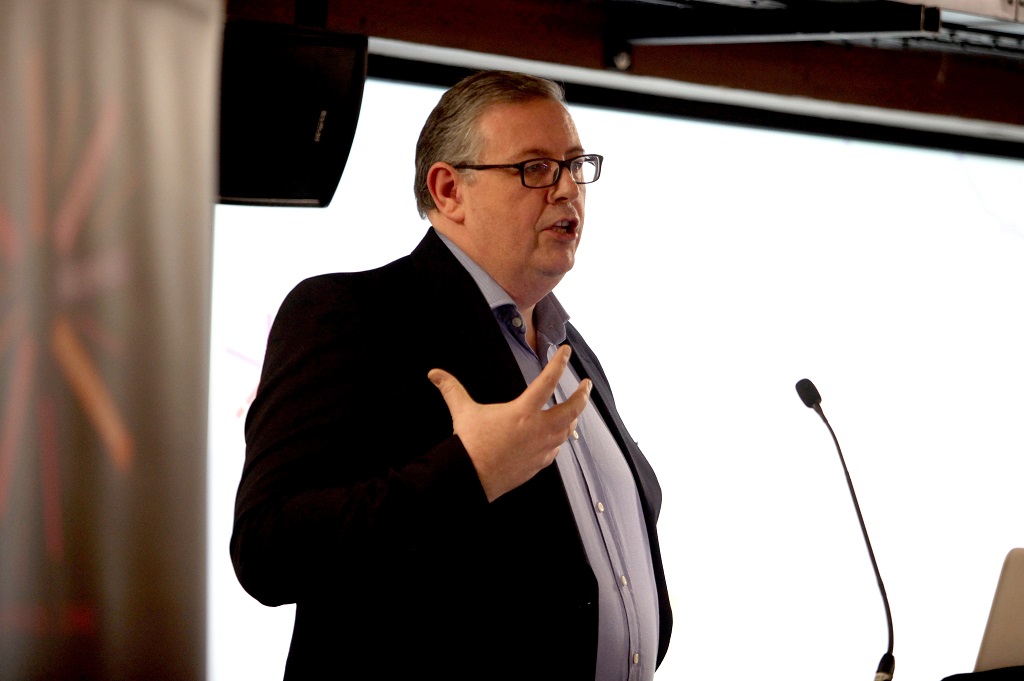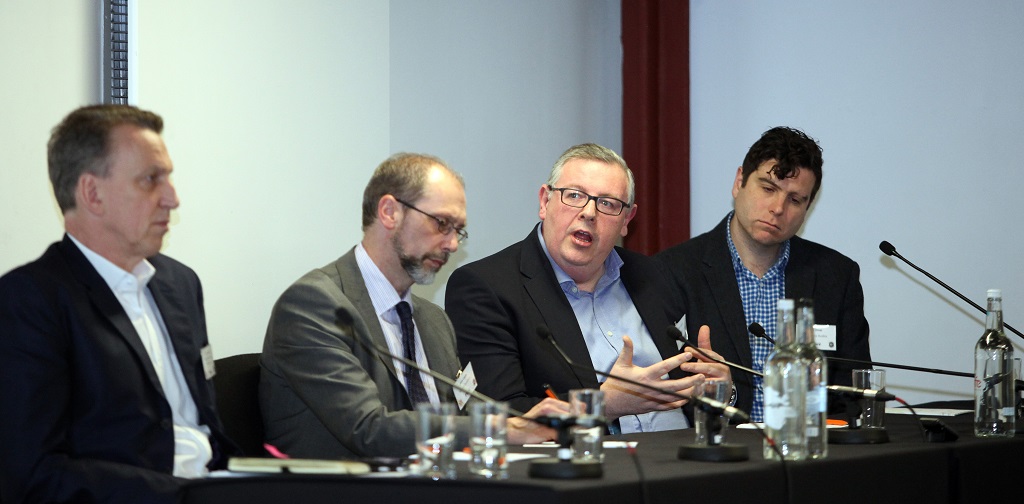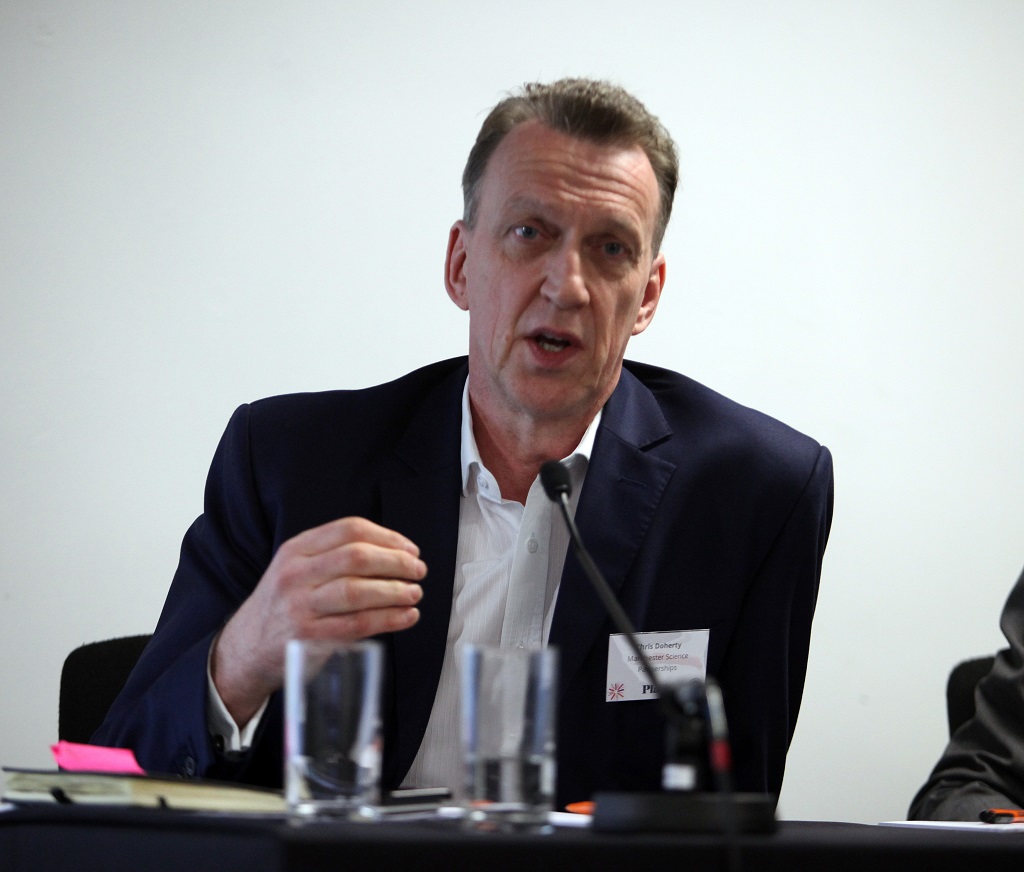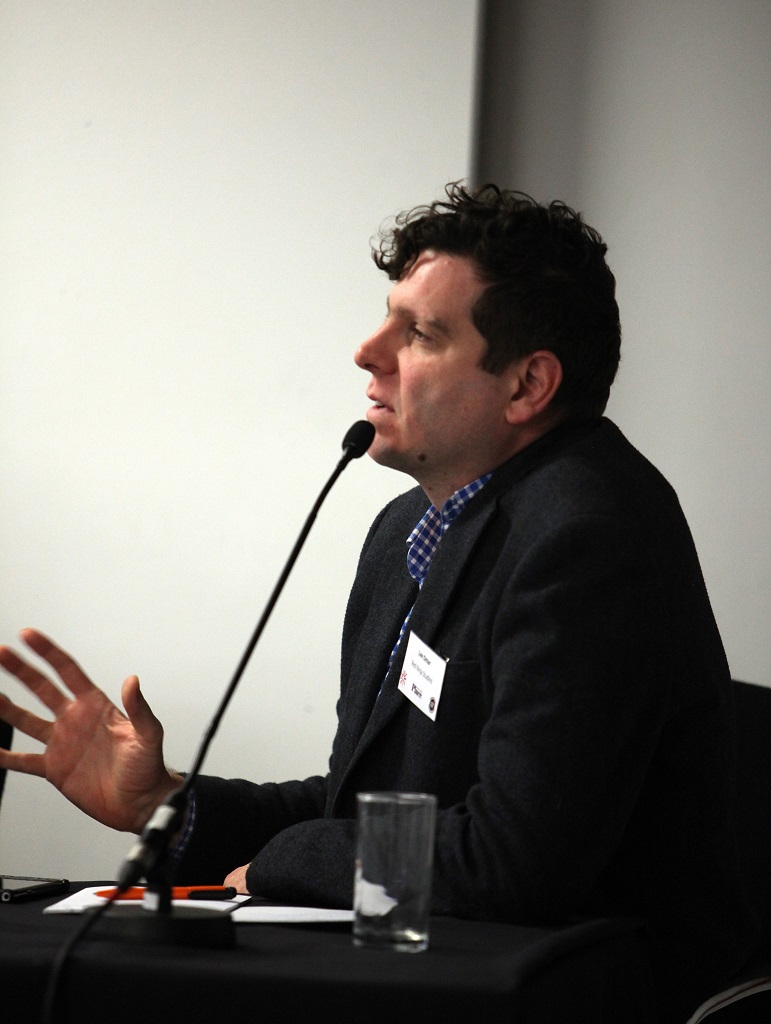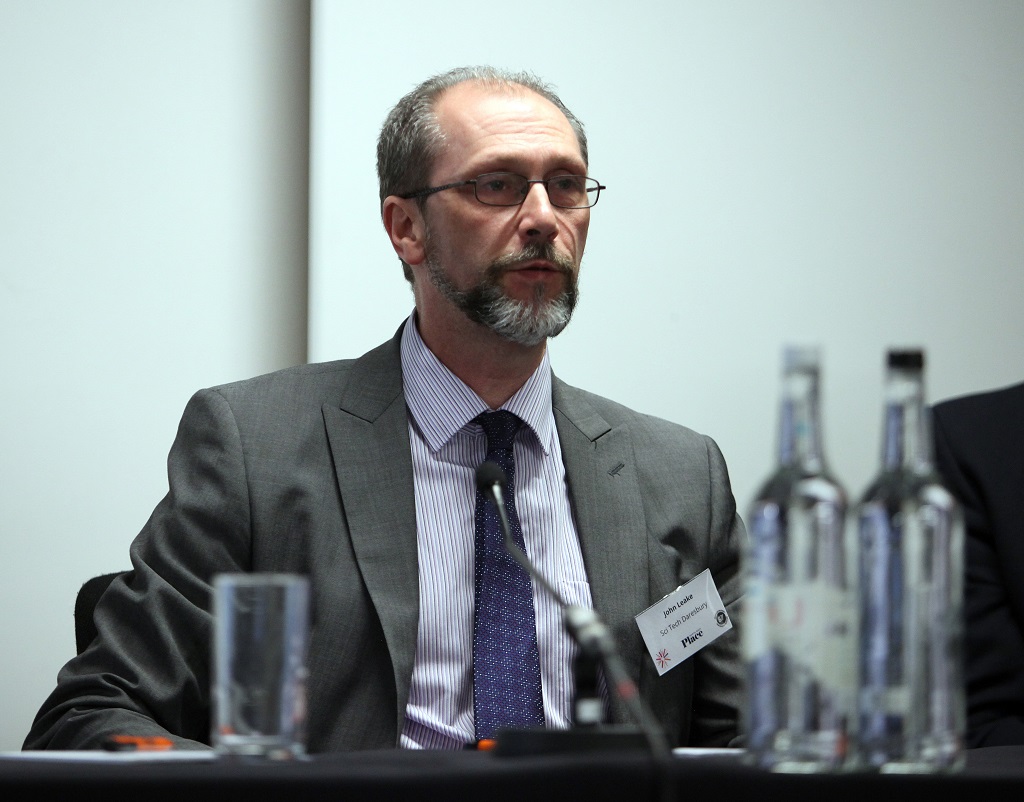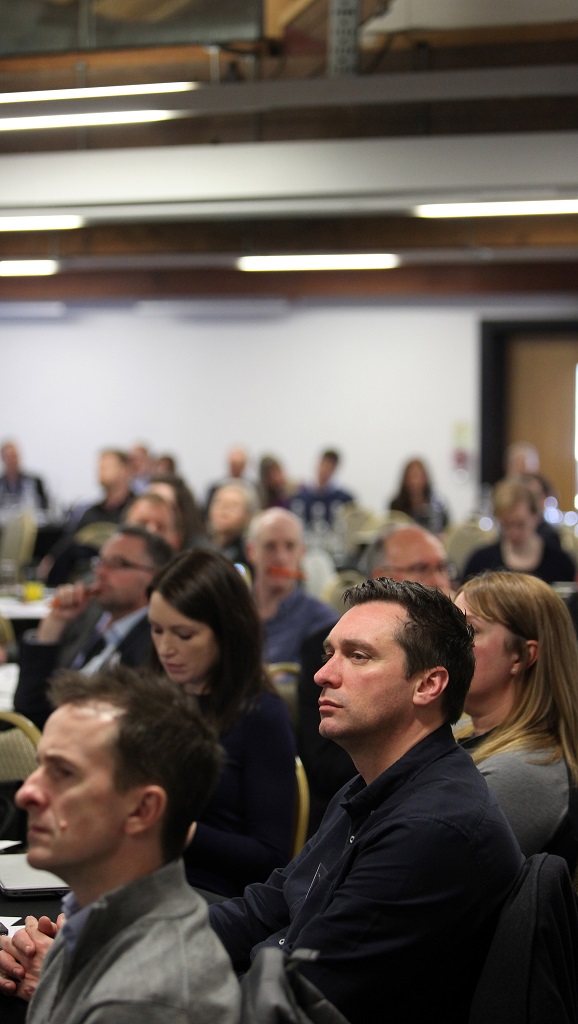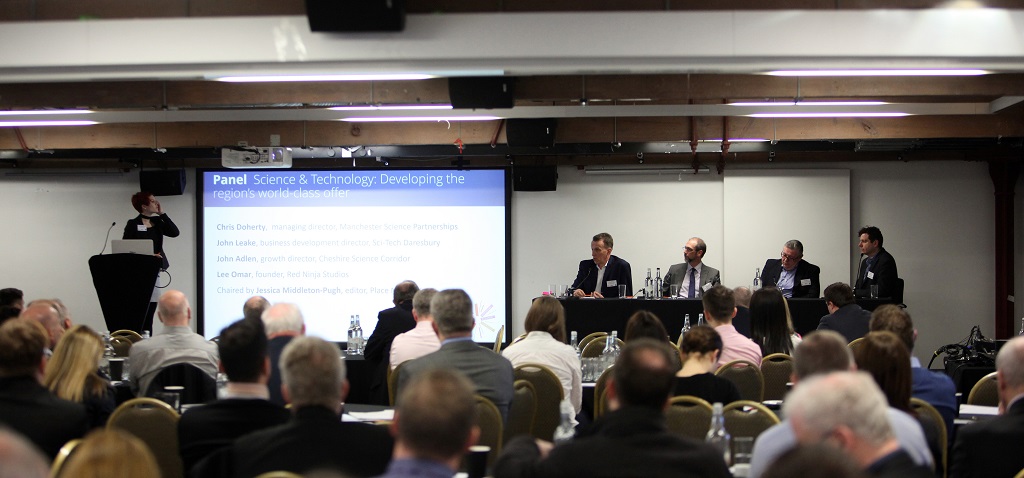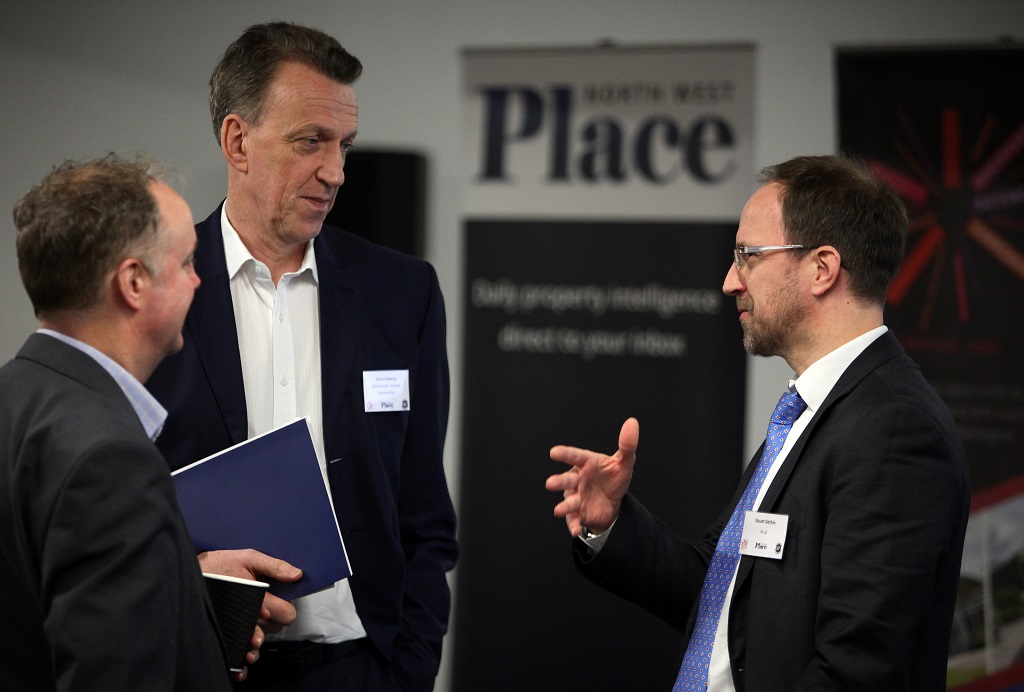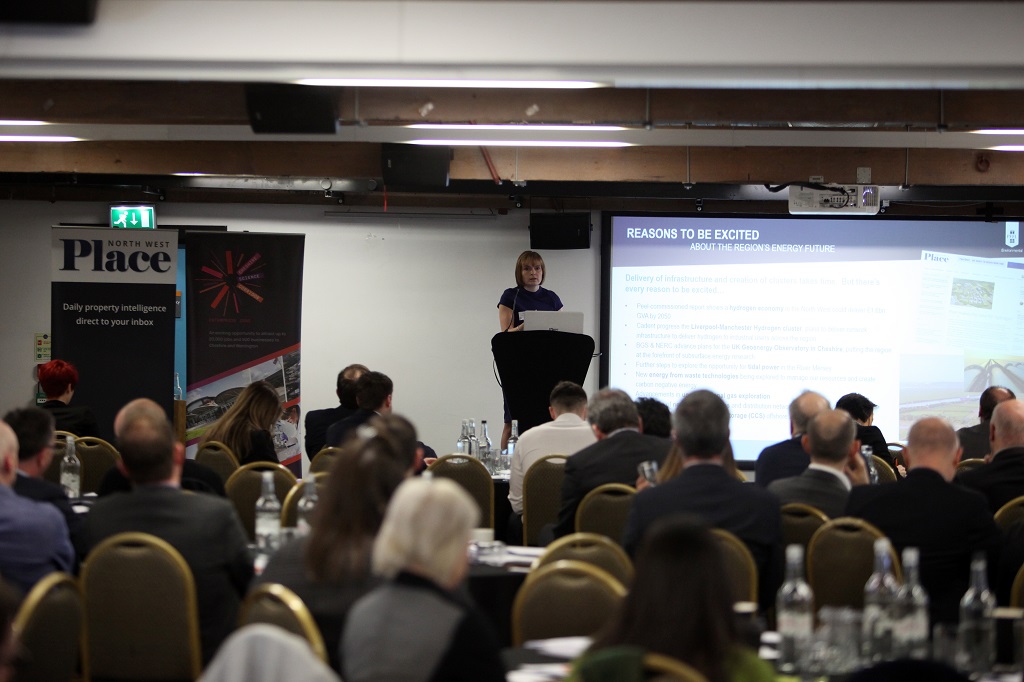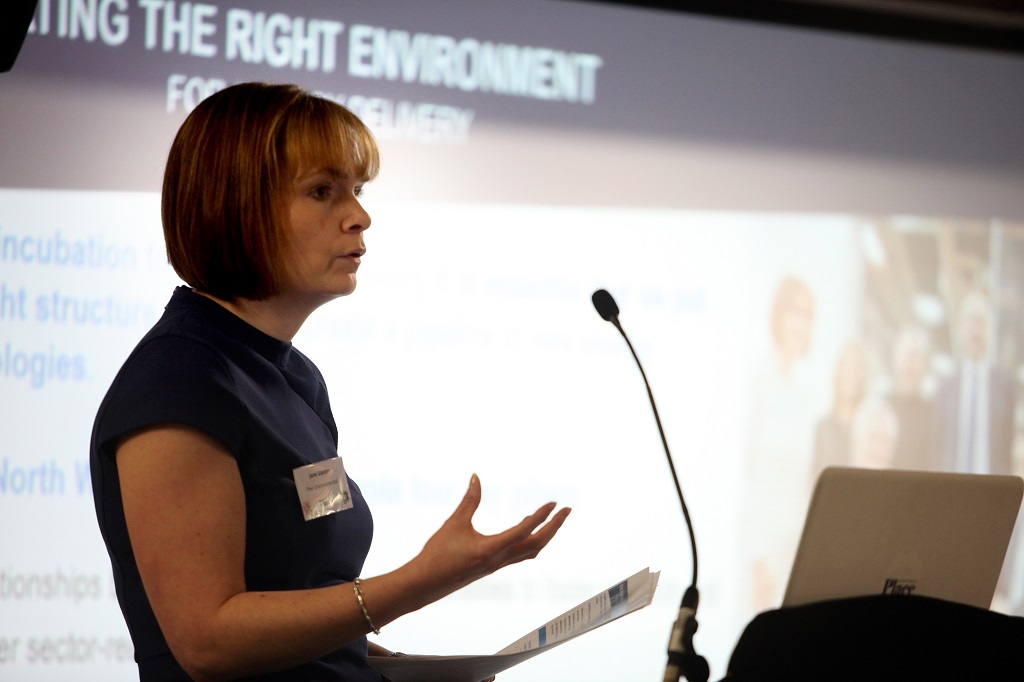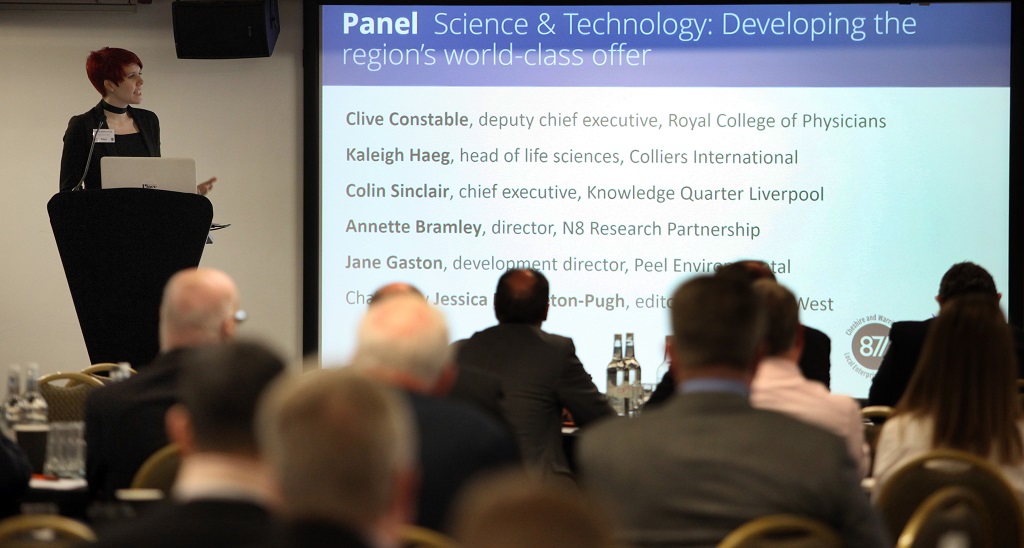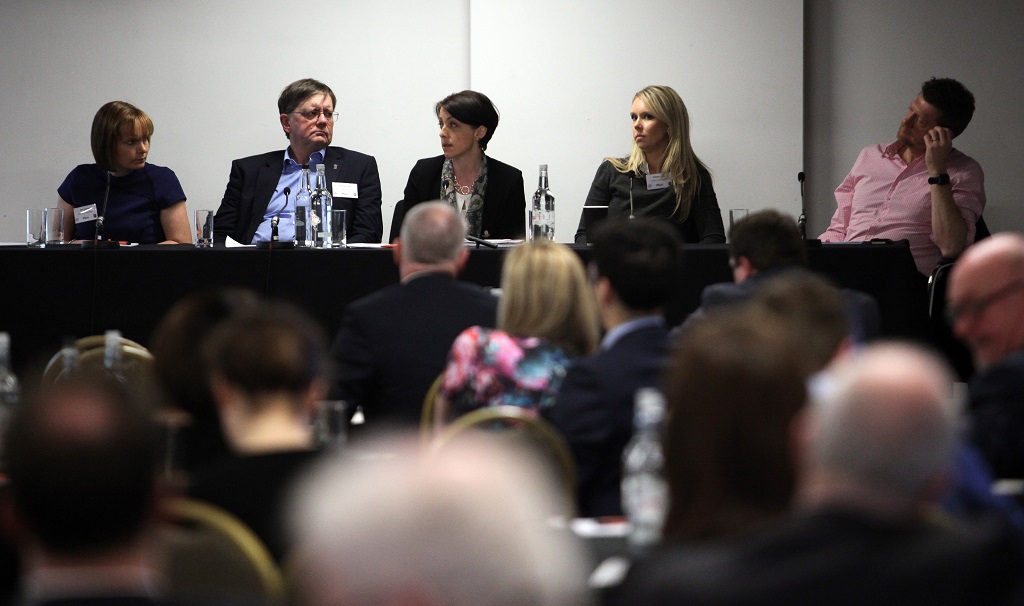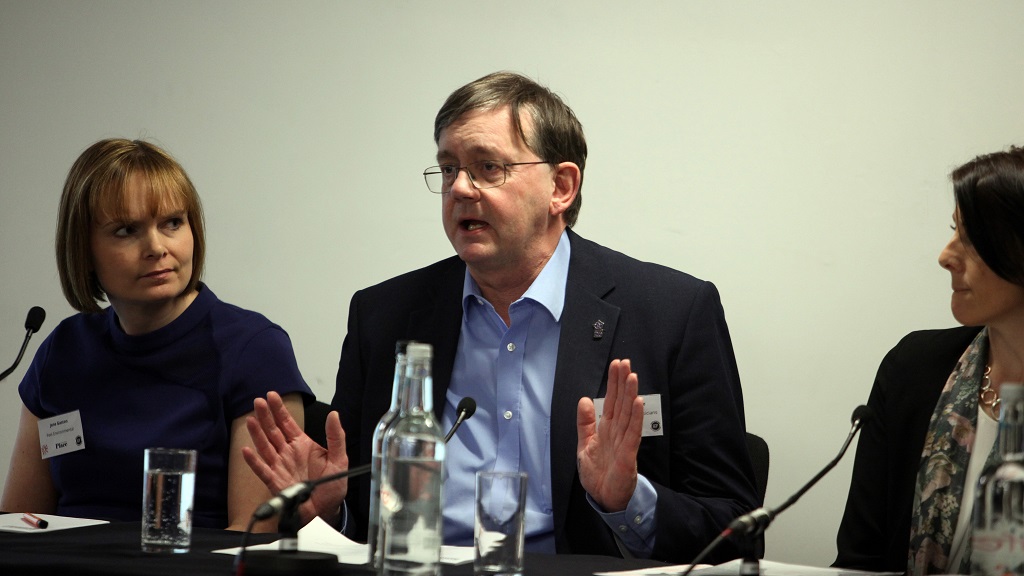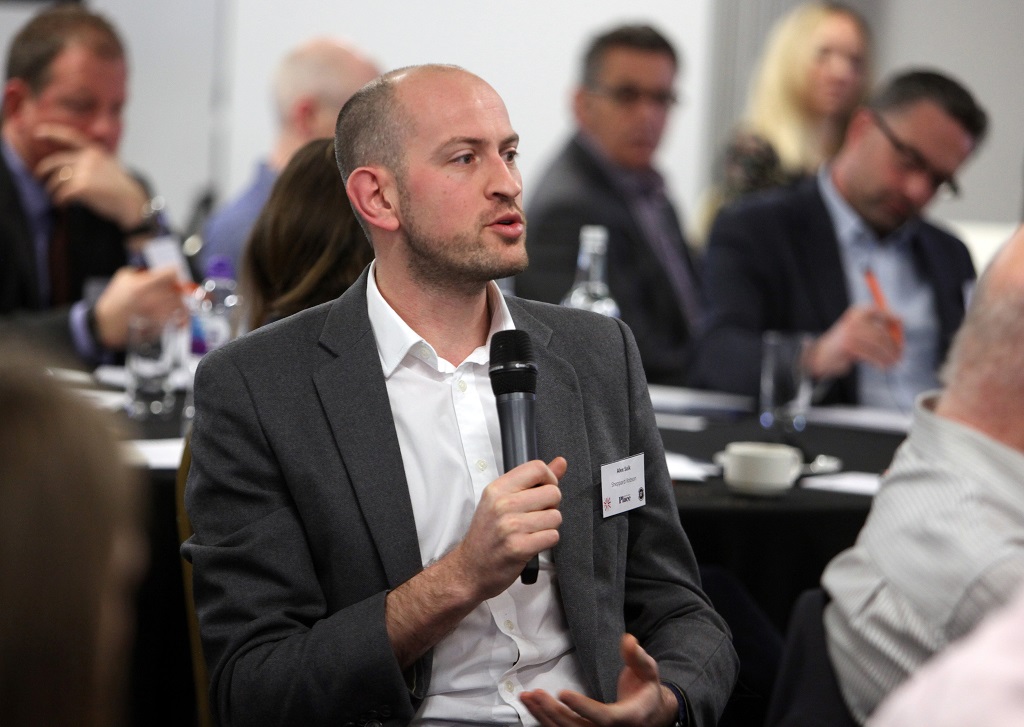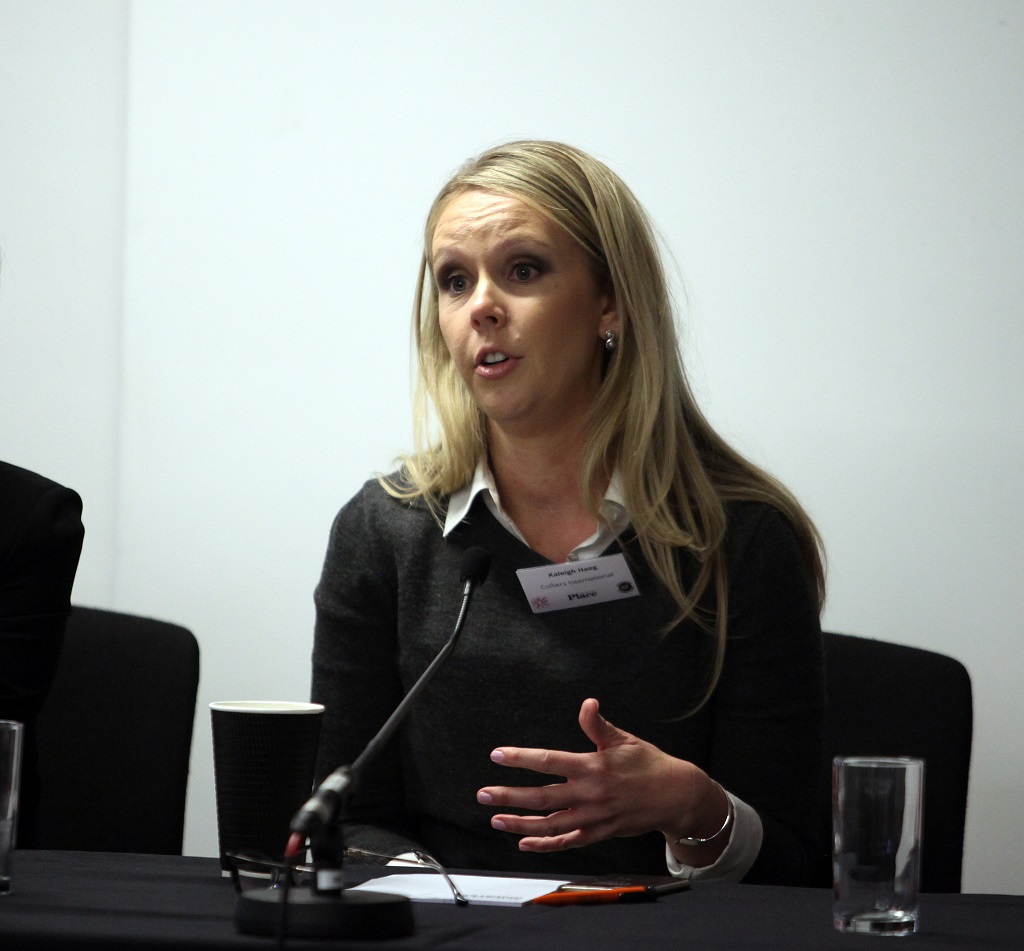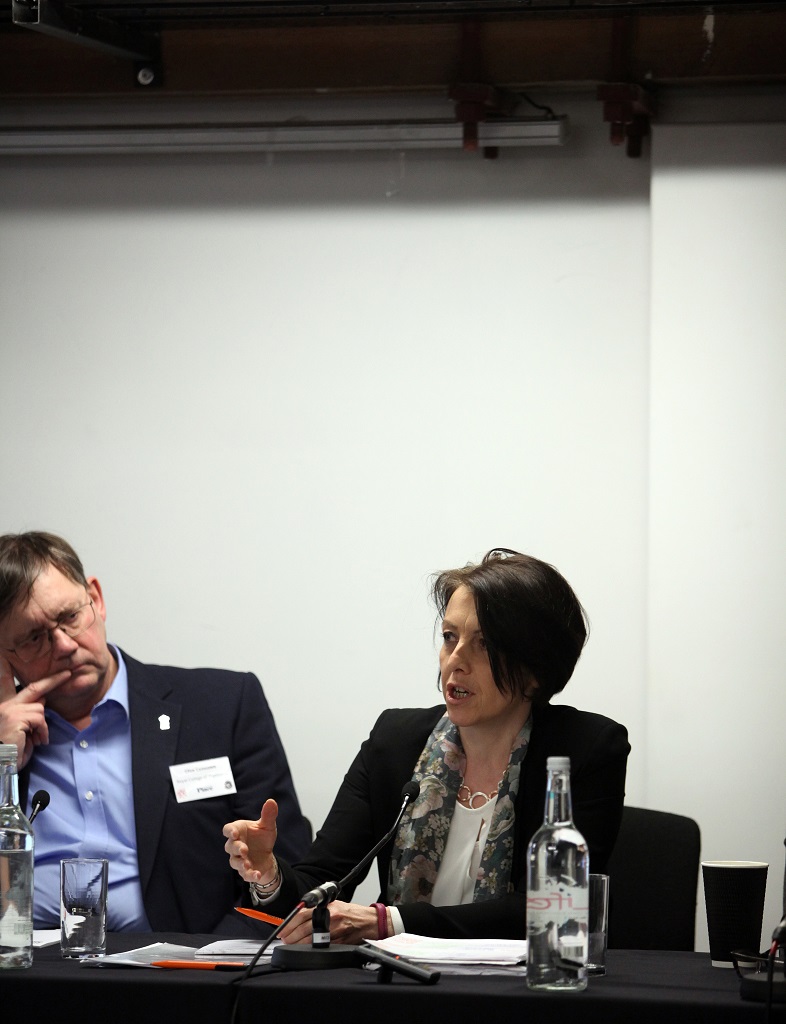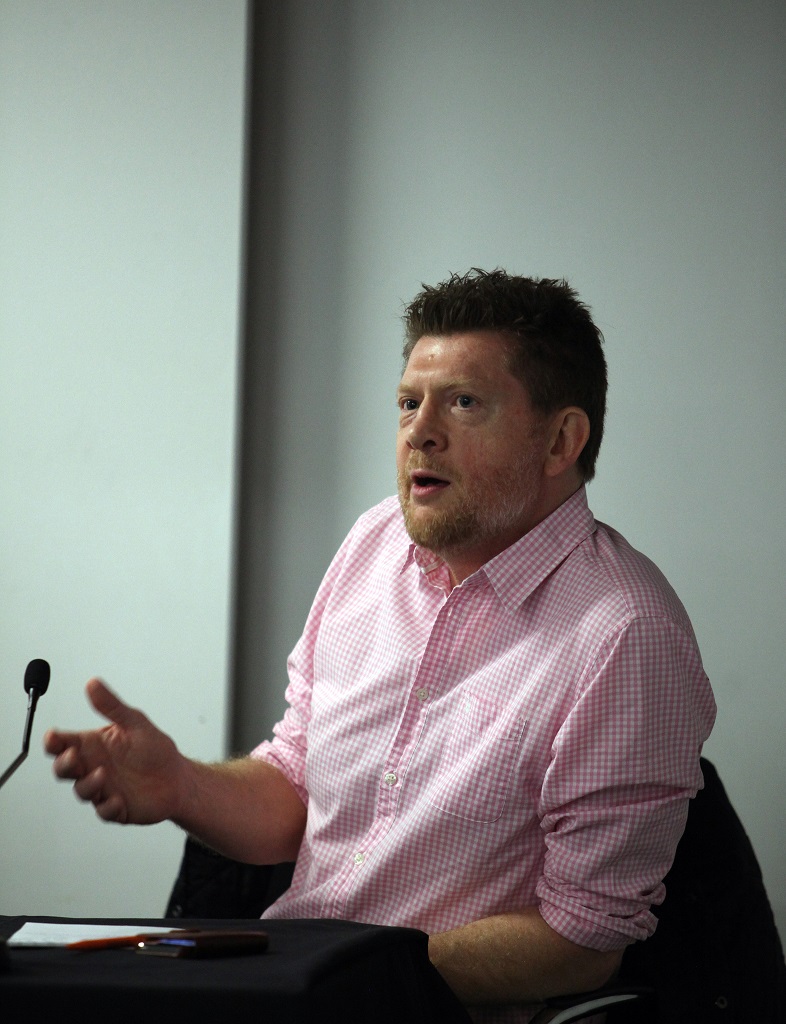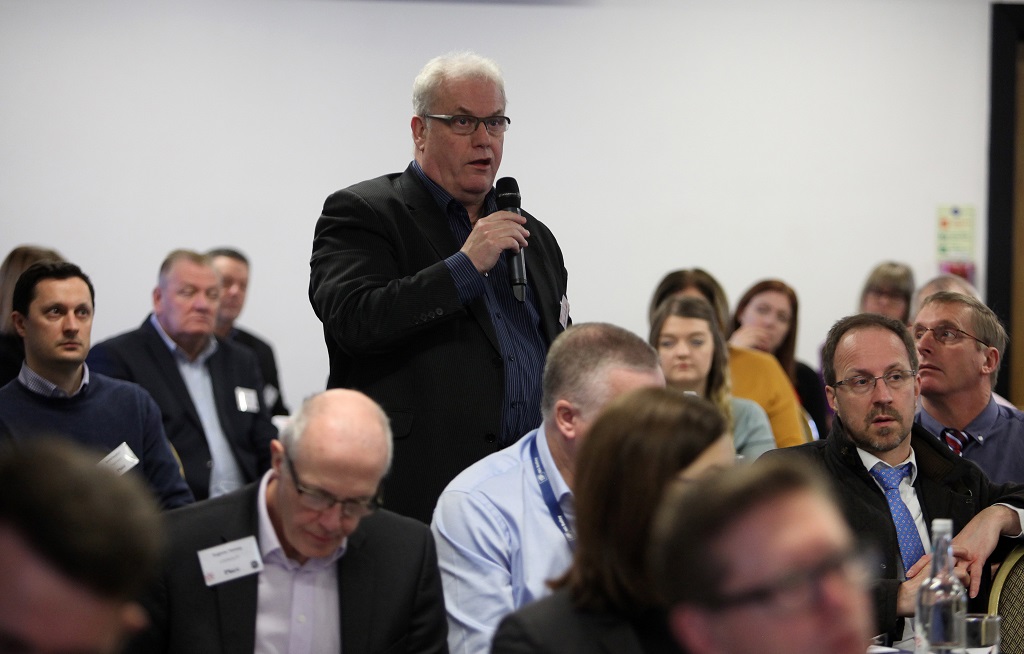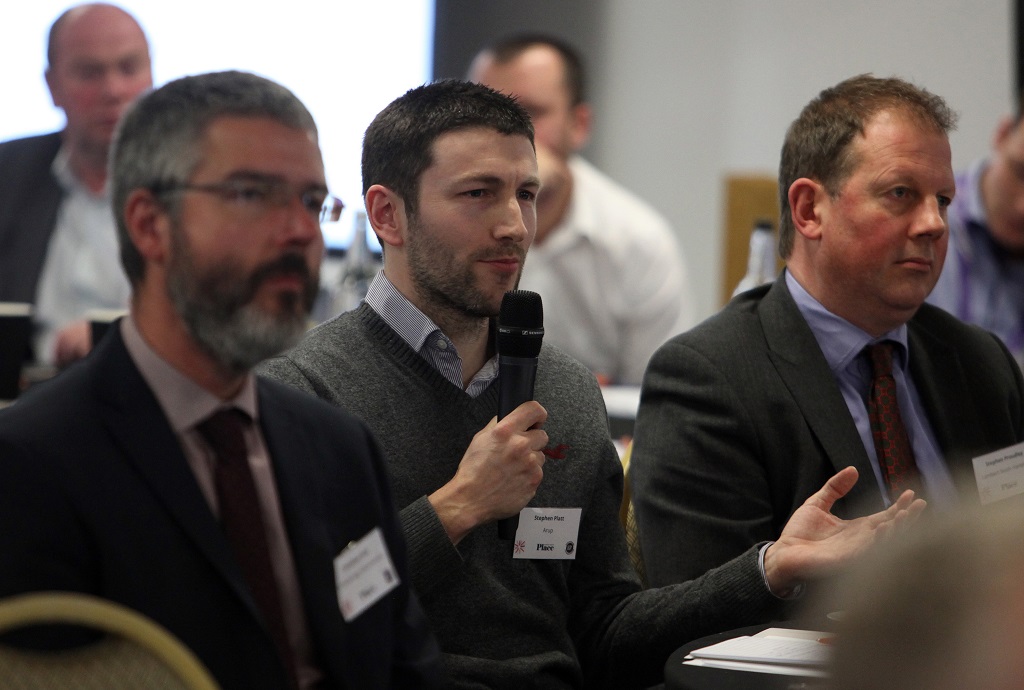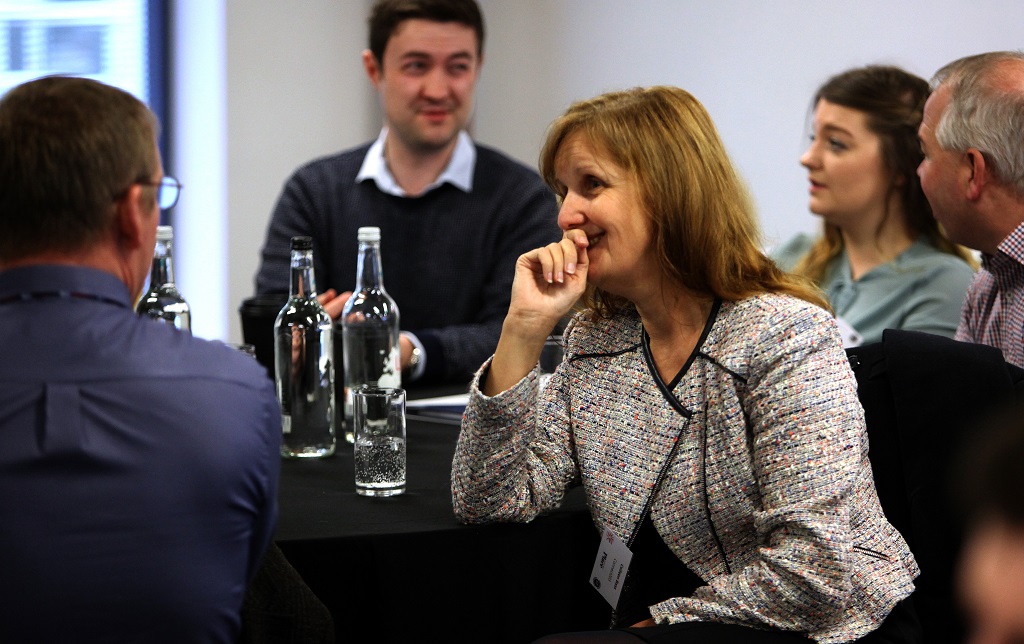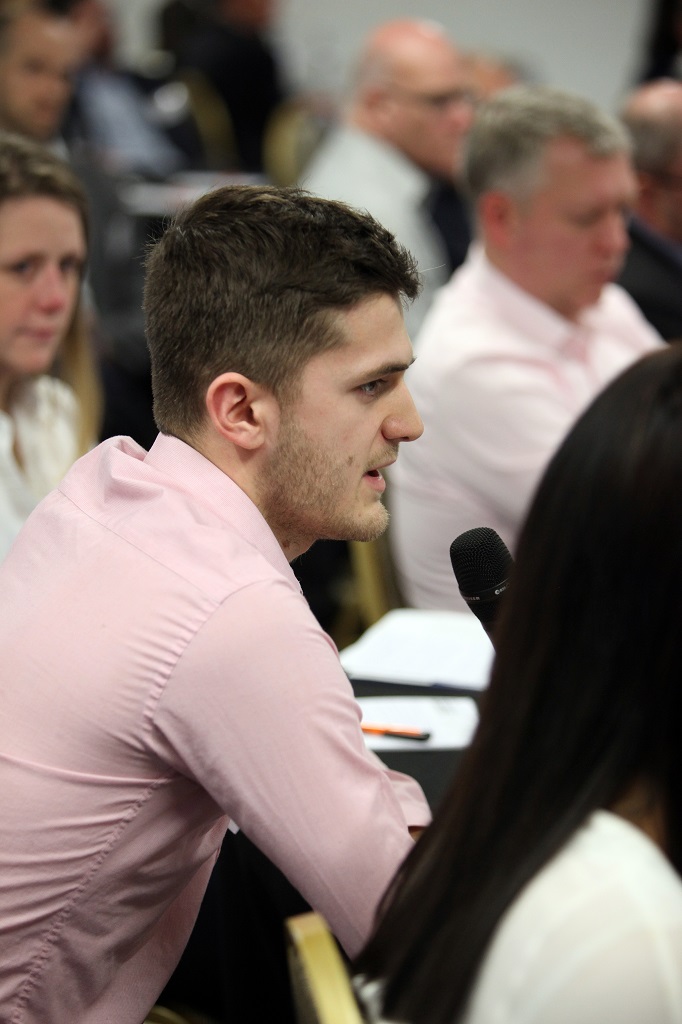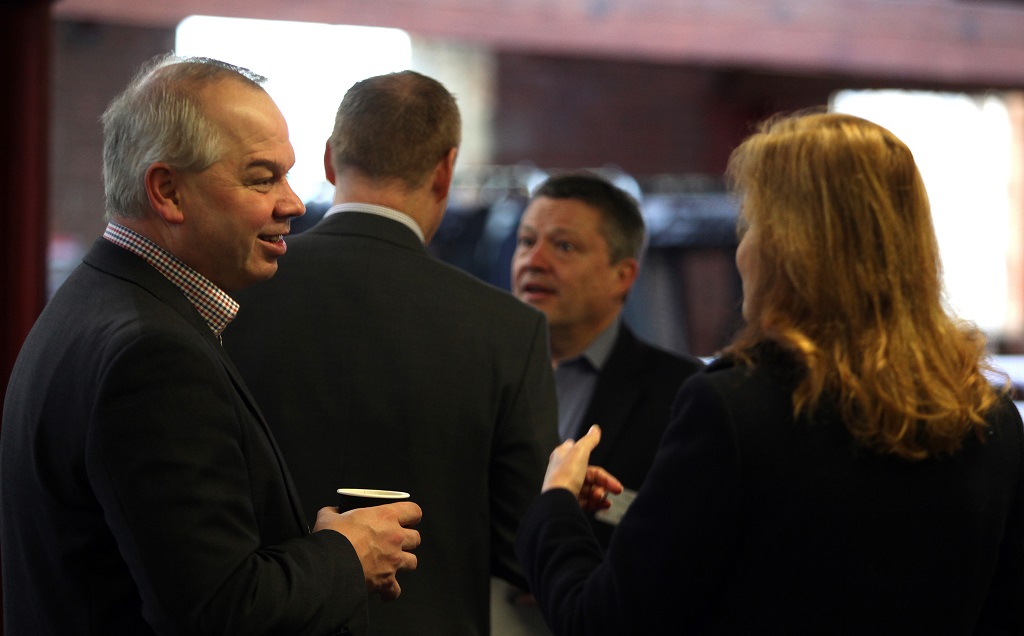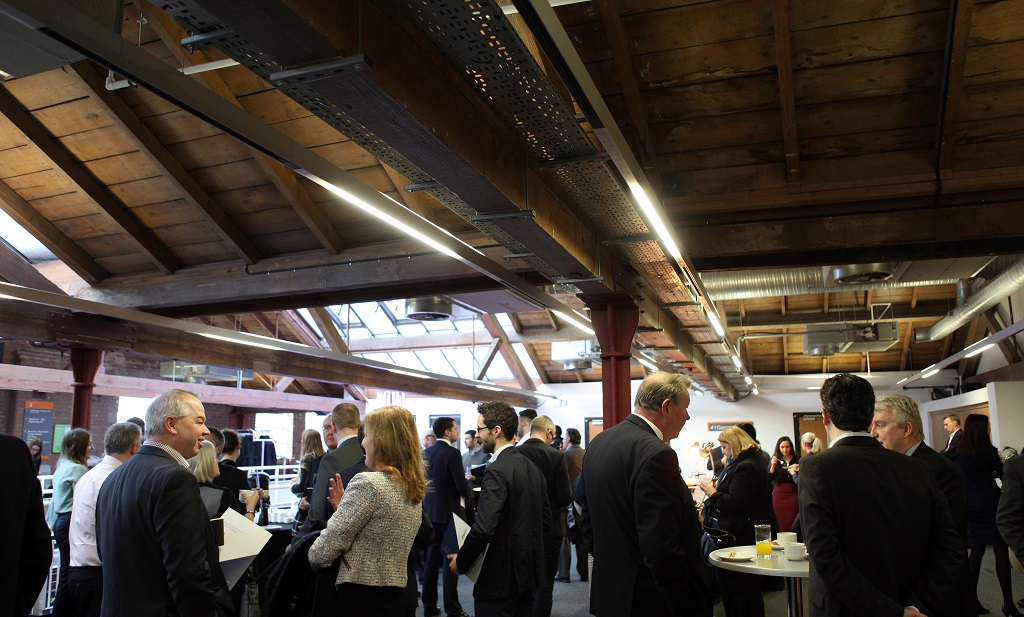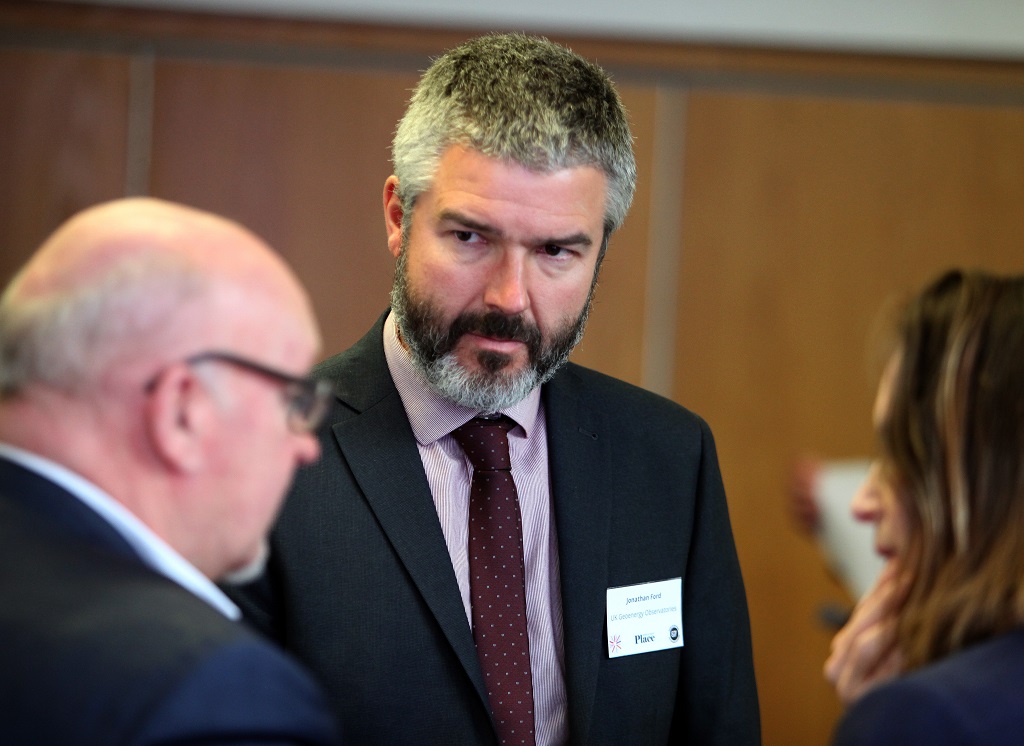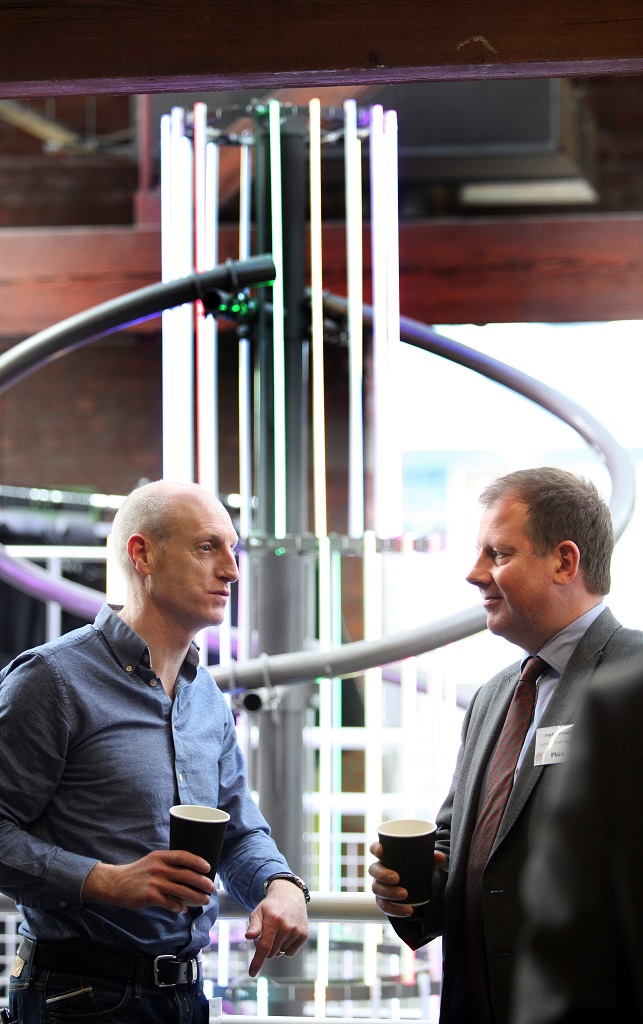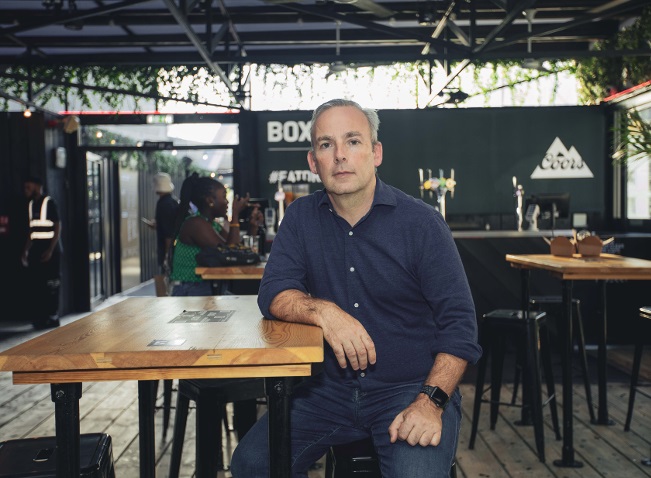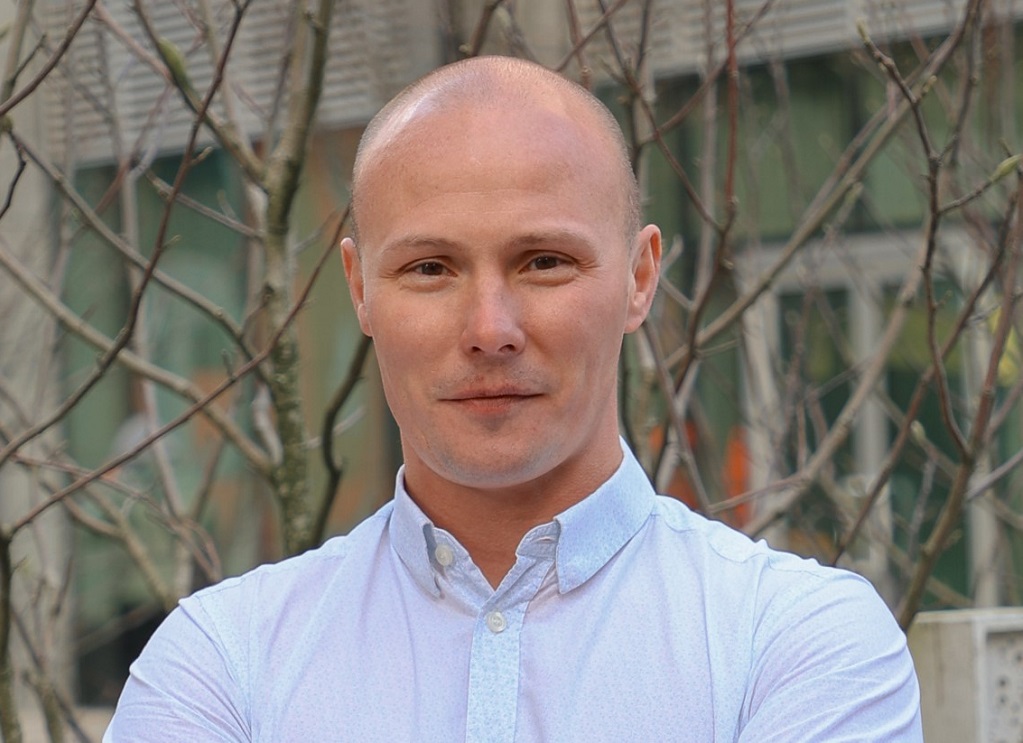Event Summary
Science & Technology | Summary, slides + images
Key figures from the science and tech industry have issued a rallying call for the region to work collaboratively to break the dominance of the ‘Golden Triangle’ of London, Cambridge and Oxford, and sell the North West as a destination on the world stage.
See below for slides + photo gallery
More than 150 delegates attended Place North West’s Science & Technology: Developing the region’s world-class offer event at the Museum of Science and Industry in Manchester, held in partnership with the Cheshire & Warrington Local Enterprise Partnership and Cheshire Science Corridor.

A packed agenda included John Adlen, growth director at Cheshire Science Corridor; Lee Omar, founder of Red Ninja Studios; John Leake, business development director for Sci-Tech Daresbury; Dr Chris Doherty, managing director of Manchester Science Partnerships’ Alderley Park; Jane Gaston, development director at Peel Environmental; Colin Sinclair, chief executive of Knowledge Quarter Liverpool; Clive Constable, deputy chief executive of the Royal College of Physicians; Dr Annette Bramley, director of N8 Research Partnership; and Kaleigh Haeg, head of life sciences at Colliers International.
Becoming a global player
Adlen kicked off the event by describing how Cheshire & Warrington Local Enterprise Partnership wanted to explore how Cheshire, Manchester and Liverpool could all work together to promote their science and tech assets and compete on the global stage.
- “The North West is punching below its weight” when it came to its international presence, he said, adding the region does not feature on many current maps showing tech and science clusters across the world
- He added the Cheshire Science Corridor already boasted world-leading assets including the UK’s largest and best invested life science campus at Alderley Park; the world’s largest site dedicated to mass spectrometry; and the Square Kilometre Array at Jodrell Bank creating the world’s largest radio telescope
- When combined with assets in Liverpool and Manchester, the region offered a science and tech corridor that could easily compete with established global destinations such as Toronto’s Waterloo Corridor, he claimed
Supporting innovation
Omar followed with a presentation covering his experiences establishing tech company Red Ninja Studios, which specialises in Internet of Things and Artificial Intelligence technology.
- The firm is currently working on Smart Cities technology to help ambulances navigate congested cities, and is supporting the region’s freight sector by connecting Liverpool Port with the logistic centres in Warrington
- Projects like Manchester’s £10m CityVerve scheme, which aims to introduce more Smart City technology in the region, were vital in helping firms trial and scale IoT ideas, he added
- Being based in the “cool” Baltic Triangle region of Liverpool was important in establishing the start-up, offering cheap rent and a location that appealed to young staff. However, the firm has now moved to the Liverpool Science Park to support its growth, with Omar suggesting a “middle way” was needed to allow growing tech companies to stay in premises which appeal to Millennial staff
Success stories
Adlen and Omar were joined by Alderley Park’s Doherty and Sci-Tech Daresbury’s Leake for a panel discussion focused on the existing science and tech offering across the North West
- Doherty provided an update on the 400-acre Alderley Park, saying the site was now competing with the “Golden Triangle” in the South of England, having just attracted its first firm to relocate to the site from London and international interest from the USA growing
- Doherty added the 150,000 sq ft commercial development planned for the site could be earmarked for tech businesses
- Leake outlined the scale of ambition for Sci-Tech Daresbury, which is planning another 1m sq ft of development. He added the UK’s fastest supercomputer on the site’s Hartree Centre meant the likes of Unilever, GlaxoSmithKline, Rolls Royce, and BAE Systems were all turning to Daresbury to change the way they do business
- Plans to grow Sci-Tech Daresbury from 1,400 to 15,000 staff were being supported by the completion of 43,000 sq ft of Grade A office space at Techspace One and Techspace Two, with Hitachi taking 2,500 sq ft for an electronic microscope facility
- Adlen said the Cheshire & Warrington LEP was focused on making sure firms on the Cheshire Science Corridor had access to the right sites, good transport links, and skilled staff to support a mix of nuclear, life sciences, energy and advanced manufacturing industries, but added Cheshire, Manchester and Liverpool would need to collaborate to make sure the right housing and lifestyle offer was available. “It’s important we don’t get hung up on geographical boundaries,” he said
- “Access to talent” was the biggest factor for entrepreneurs when it comes to setting up a tech business according to Omar. “There are great universities in the North West and a lot of good talent coming out of them,” he said. “You can collaborate with those universities and they are world class in innovation and education”
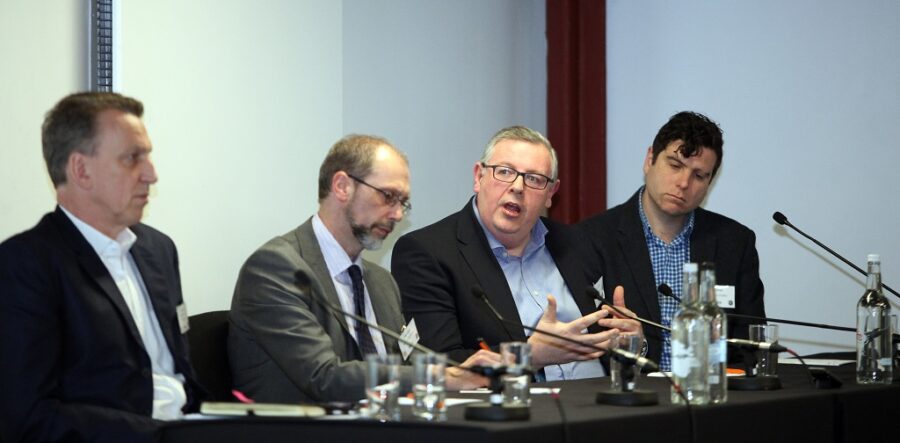
From left: Chris Doherty, Manchester Science Partnerships’ Alderley Park; John Leake, Sci-Tech Daresbury; John Adlen, Cheshire Science Corridor; Lee Omar, Red Ninja Studios
Creating clusters
Gaston gave an update on Peel Environmental‘s Protos, a new energy innovation district at the former Ince Park site on the Cheshire Science Corridor
- One year after the site opened, Gaston said Protos was creating a “first of its kind” destination for energy and innovation with 134-acres of development planned and £170m of investment secured for phase one. She added the region was leading the UK in energy innovation and was “packed with energy-hungry companies, along with those focused on innovation in energy generation”
- Businesses moving to Protos would not need to “helicopter in skills,” said Gaston, and could take advantage of the region’s already established workforce. Links with Thornton Science Park and the University of Chester would “futureproof” skills at the site and create a new generation of workers, she added
- Garston confirmed PowerHouse Energy, which transforms waste into energy, was the latest firm planning its move to Protos, having originally been based at Thornton Science Park’s Innovation Hub during its initial growth period
Research key to growth
Clive Constable from the Royal College of Physicians, Kaleigh Haeg from Colliers, Colin Sinclair from Knowledge Quarter Liverpool and Dr Annette Bramley from N8 Research Partnership joined Gaston for the event’s final panel, looking at future trends driving the growth of the science and tech industries in the region
- Bramley explained N8, a partnership of eight northern universities, was working to attract crucial research funding into the region saying: “Research is important in attracting and retaining academic talent, which will help bring businesses North and rebalance the economy”. As a pan-Northern organisation, she stressed that geographical boundaries and local politics were becoming more and more irrelevant
- When selling the North West science sector internationally, Haeg said research was the most important asset. “It’s very much research first, location second,” she said. Knowledge exchange, opportunities for collaborations with universities, clinical trials, access to patients and a route to sale with the NHS were all major factors in making companies choose sites in the North, she confirmed
- Sinclair said “the power of partnership” across the private, public and academic sectors was at the heart of plans for Liverpool’s new Knowledge Quarter. He agreed linking potential occupiers’ research strengths was crucial to grow the science and tech industry in the city, adding universities needed to work on the commercialisation of their research offer
- Constable provided an update on the Royal College of Physicians’ move to its new £35m 160,000 sq ft Northern headquarters within the Paddington Village development, central to the Knowledge Quarter plans. Completion of the building is scheduled for three years’ time, with 12 staff currently based at the University of Liverpool’s William Henry Duncan Building as part of a phased opening in the North. RCP is now approaching its 14 sister colleges to also encourage a move North, he said
- Sinclair said the RCP move to the Knowledge Quarter had created “lots of interest” in Paddington Village. He said the £1bn 30-acre development will offer 1.8m sq ft of space which will remain focused on the health, education and science sectors. “We want to focus on the areas where Liverpool can lead,” he said
- Garston said more could to be done in the North West to help SMEs who were looking to scale up their businesses. “We can’t just look at this from a square meterage point of view,” she said. “We have to look at the overall needed of the businesses. We want to get people based in the North West, establish them here and then help them to grow”
You can view the presentations from the day here on Place North West’s Slideshare page
Click any image below to launch gallery
- John Adlen, Cheshire Science Corridor
- John Adlen, Cheshire Science Corridor
- Lee Omar, founder of Red Ninja Studios
- From left: Chris Doherty, Manchester Science Partnerships’ Alderley Park; John Leake, Sci-Tech Daresbury; John Adlen, Cheshire Science Corridor; Lee Omar, Red Ninja Studios
- Chris Doherty, managing director of Manchester Science Partnerships’ Alderley Park
- Lee Omar, founder of Red Ninja Studios
- John Leake, business development manager for Sci-Tech Daresbury
- From left: Chris Doherty, Manchester Science Partnerships’ Alderley Park; John Leake, Sci-Tech Daresbury; John Adlen, Cheshire Science Corridor; Lee Omar, Red Ninja Studios
- Jane Gaston, development director at Peel Environmental
- Jane Gaston, Peel Environmental
- The conference was chaired by Jessica Middleton-Pugh, editor of Place North West
- From left: Jane Gaston, Peel Environmental; Clive Constable, Royal College of Physicians; Dr Annette Bramley, N8 Research Partnership; Kaleigh Haeg, Colliers International; Colin Sinclair, Knowledge Quarter
- Clive Constable, deputy chief executive of the Royal College of Physicians
- Kaleigh Haeg, head of life science UK/EMEA, Colliers International
- Dr Annette Bramley, director of N8 Research Partnership
- Colin Sinclair, chief executive of the Knowledge Quarter


